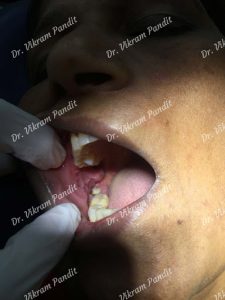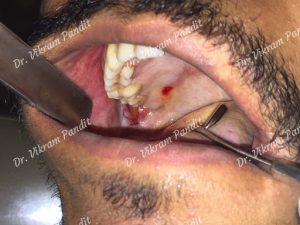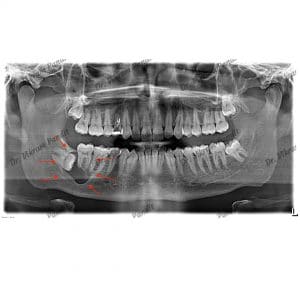- Home
- About Us
- Plastic & Cosmetic SurgeryPlastic ReconstructiveFace ContouringBreast SurgeryBody ReshapingRejuvenation
- Cosmetology & Dermatology
- Trichology
- Eye Surgery
- Oral & Maxillofacial Surgery
- Pediatric Preventive Dental Care
- International Patients
- Media and Awareness
- Testimonials
- Contact Us
- CALL US
- E-CONSULT
- Home
- About Us
- ServicesPlastic & Cosmetic SurgeryCosmetology, Dermatology & TrichologyEye SurgeryOral & Maxillofacial SurgeryPediatric DentistryPlastic ReconstructiveFace ContouringBreast SurgeryBody ReshapingRejuvenationCosmetology ProceduresDermatology TreatmentsOral & Maxillofacial servicesOral & Maxillofacial servicesOral & Maxillofacial servicesPediatric Dentistry ServicesPediatric Dentistry Services
- International Patients
- Media and Awareness
- Testimonials
- Contact Us
Wisdom Tooth Removal
- Home
- Oral and Maxillofacial Surgery
- Wisdom Tooth Removal
Dr Vikram Pandit, has tremendous proven experience in wisdom tooth removal surgery. Equipped with the latest Piezoelectric device to make the procedure smooth and painless.
- Home
- Oral and Maxillofacial Surgery
- Wisdom Tooth Removal
Wisdom tooth removal is a crucial dental procedure that addresses common issues associated with third molars or Akal Daad. At Pandit Clinic, our experienced team ensures a safe and comfortable experience. This guide provides comprehensive information about wisdom teeth, the extraction process, and what patients can expect before, during, and after the procedure.
What Is A Wisdom Tooth? Understanding Third Molars and Their Issues
Wisdom teeth, or third molars (Akal Daad), are remnants of our evolutionary past when early humans needed extra molars to chew coarse, uncooked food. As our diets softened the necessity for these additional teeth diminished. These teeth usually erupt during 18-24 years of age. There are a total of 4 wisdom teeth, one in each quadrant of your mouth. Problems include misalignment, pain, and infection, especially when they grow sideways towards the cheek or become tilted.
When Does Wisdom Tooth Erupt? Timing and Development of Wisdom Teeth
The timing and process of wisdom tooth eruption can vary widely among individuals. Typically, these teeth begin to emerge during the late teens to early twenties. However, not everyone’s wisdom teeth will fully erupt; they may remain partially or fully impacted, meaning they don’t break through the gums entirely.
- Early Development (Ages 15-18): At this stage, the wisdom teeth begin to form within the jawbone, but there are usually no visible signs or symptoms.
- Initial Eruption (Ages 17-25): The wisdom teeth may start to break through the gums, often causing discomfort or pain. This is when most problems, such as crowding or partial impaction, become apparent.
- Full Eruption or Impaction (Ages 25+): By this age, the wisdom teeth have either fully erupted or remain impacted. Impacted wisdom teeth often lead to complications such as infections, cysts, or damage to adjacent teeth.
What Is Wisdom Tooth Extraction? A Guide to the Process of Wisdom Teeth Removal Surgery
Many of times, these teeth do not erupt in proper alignment with the rest of the teeth due to insufficient space available. In these situations, such teeth may cause pain or discomfort during eating, speaking, and other such common daily activities.
If erupted in the cheek side, these teeth cause severe cheek bite which is extremely painful and may cause traumatic ulcers in your cheek mucosa. Similar ulcers will occur on the tongue if these are tilted towards the tongue. Wisdom tooth extraction involves the removal of one or more wisdom teeth to prevent or address problems such as pain, infection, and damage to other teeth. The procedure can be simple or complex, depending on the tooth’s position.
During the eruption of these teeth, you may have symptoms of teething which include redness/swelling in your gums, pain in the jaw, peri-oral muscles, fever, headache/earache, etc.
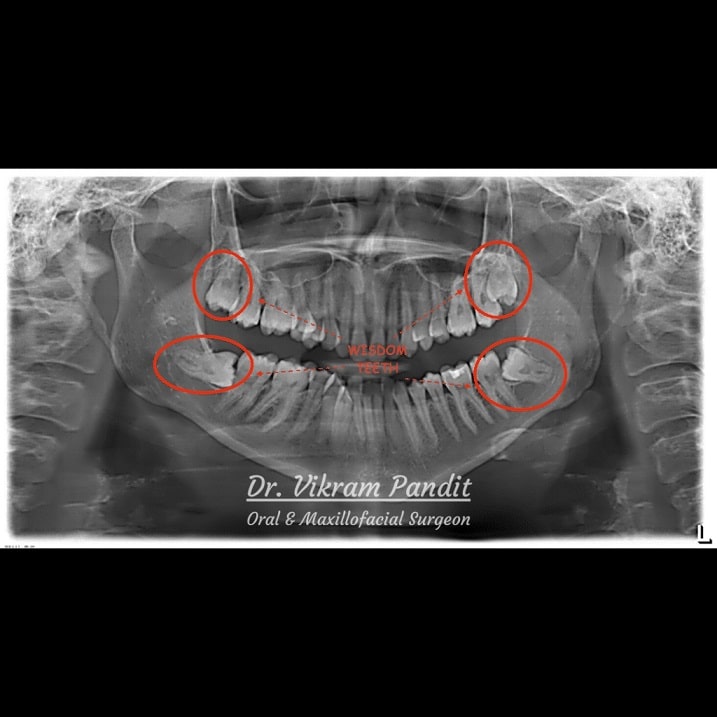
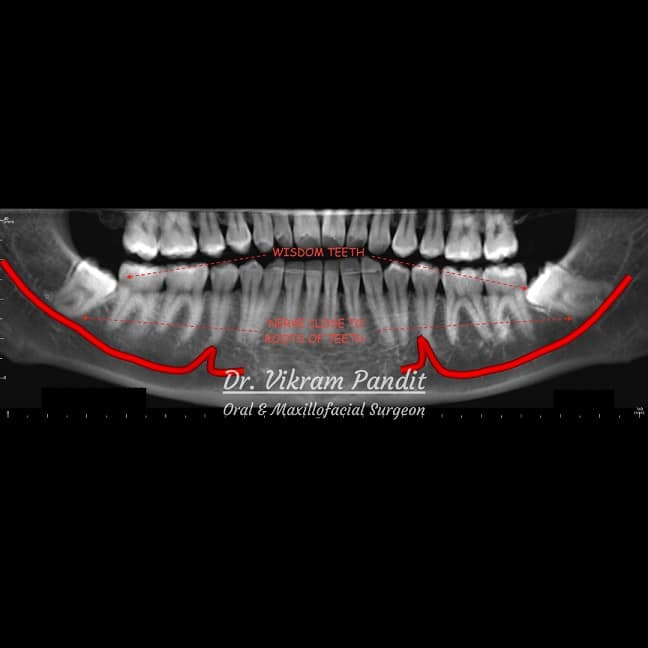
Wisdom Tooth Extraction Cases
Why You Might Need Wisdom Teeth Removal: Key Reasons for Extraction
Several reasons necessitate the removal of wisdom teeth:
- Pain: Persistent discomfort or pain due to impaction or growing sideways hurting cheek.
- Infection: Increased risk of bacterial infection and gum disease.
- Damage: Potential harm to adjacent teeth and dental structures.
- Cysts or Tumors: Formation of cysts or tumors around the impacted teeth.
- Crowding: Prevention of orthodontic issues caused by overcrowded teeth.
Do All Wisdom Teeth Need to Be Removed? Factors Influencing the Need for Extraction
Not all wisdom teeth require removal. Whether extraction is necessary depends on several factors:
- Alignment: Wisdom teeth that are properly aligned and do not cause issues may not need removal.
- Impaction: Impacted teeth, which remain beneath the gums, often require extraction.
- Oral Health: Overall oral health and the presence of symptoms play a significant role in the decision.
Consultation with a dental professional is crucial, as the need for extraction varies based on individual cases. Dr. Vikram Pandit, an Oral and Maxillofacial Surgeon at Pandit Clinic, Pune, emphasizes that wisdom tooth extraction decisions should be made on a case-by-case basis. Each patient’s situation is unique, and treatment should be tailored accordingly.
Not all problems with wisdom teeth are painful or immediately visible. As wisdom teeth grow, their roots lengthen, making extraction more difficult and complications more likely. Impacted wisdom teeth are more prone to causing issues as patients age. While it’s difficult to predict when complications will arise, about 85% of third molars will eventually need to be removed. Keeping these facts in mind can help guide treatment decisions.
Expert Answers to Common Questions About Wisdom Tooth Surgery
How many of my wisdom teeth are impacted?
- Your oral and maxillofacial surgeon will thoroughly assess your wisdom teeth through X-rays and a clinical exam. Dr. Vikram Pandit will provide a detailed evaluation to determine how many are impacted and discuss the best approach for each one.
How many wisdom teeth will you be extracting? Is it necessary to remove all of them?
- The number of wisdom teeth extracted depends on their condition. While not all may need to be removed, your surgeon will guide you through the process. With Dr. Vikram Pandit’s expertise, you’ll receive personalized advice on whether each tooth requires extraction.
Has the impacted tooth caused or will it cause significant damage to adjacent teeth or gums?
- Impacted wisdom teeth can potentially damage adjacent teeth and gums. Dr. Vikram Pandit will assess the specific risks in your case and provide a clear explanation of any potential damage and how it will be managed.
What are the potential risks and complications associated with the extraction?
- While there are some risks, such as infection or dry socket, your surgeon will take all necessary precautions to minimize these. Dr. Vikram Pandit will ensure you are well informed about potential risks and how they will be managed.
How long will the wisdom tooth extraction procedure take?
- The duration of the procedure can vary, but it typically takes about 30 to 60 minutes. Dr. Vikram Pandit will give you a more precise estimate based on the complexity of your case, ensuring you’re prepared for the procedure.
What should I expect during the recovery process?
- Post-operative recovery generally involves some swelling and discomfort, but your surgeon will provide comprehensive aftercare instructions. With Dr. Vikram Pandit’s guidance, you’ll know exactly how to manage your recovery smoothly.
How long is the expected recovery period, and when can I resume my normal daily activities?
- Most patients return to normal activities within a few days to a week. Full healing may take a bit longer, but with the support and advice of Dr. Vikram Pandit, you’ll have a clear recovery timeline and tips for a smooth return to your routine.
How Is The Surgery Done For Wisdom Tooth Removal? - A Step-by-Step Guide
The wisdom tooth removal surgery typically involves several key steps to ensure a smooth procedure:
- Anesthesia: Local or general anesthesia is administered to manage pain effectively.
- Incision: An incision is made in the gum tissue to expose the tooth.
- Extraction: The tooth is removed, often in sections to facilitate the process.
- Stitches: The incision site is stitched to promote healing.
- Gauze: Gauze is placed to control bleeding and aid in clot formation.
Understanding these steps helps alleviate patient anxiety and sets clear expectations for the surgery to remove a wisdom tooth. In more complicated cases, such as when wisdom teeth are buried deep in the jawbone or close to the underlying nerve (inferior alveolar nerve), a piezoelectric surgical device can be incredibly useful. This advanced tool offers precise bone surgery while minimizing damage to surrounding soft tissues, making the removal of wisdom teeth surgery more effective and comfortable.
At Pandit Clinic, we are equipped with state-of-the-art facilities and the latest machines to make your surgical wisdom tooth extraction smooth and painless.
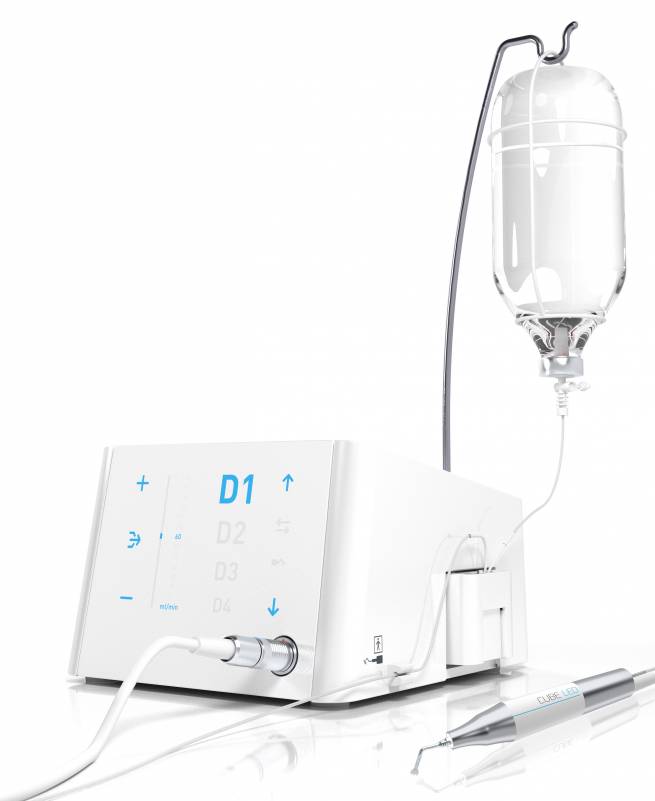
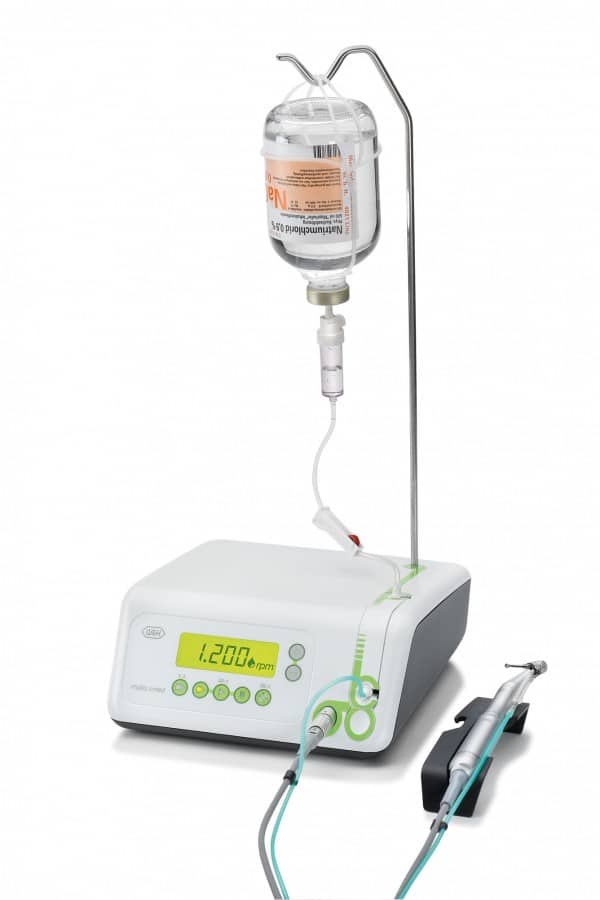
What To Expect Before Wisdom Tooth Extraction Surgery? - Preparing for the Procedure
Before undergoing wisdom tooth extraction surgery, a thorough consultation with your dentist is essential. At Pandit Clinic in Pune, Dr. Vikram Pandit, our skilled Oral and Maxillofacial Surgeon, provides a comprehensive explanation of the wisdom tooth extraction procedure. This includes discussing the treatment plan, reviewing Dental X-rays to confirm the diagnosis, and addressing any patient concerns.
Dr. Vikram Pandit is dedicated to helping patients make informed decisions about their treatment. In the period leading up to the surgery, he may prescribe pain relief medications and suggest dietary adjustments to alleviate any discomfort caused by the eruption of the wisdom tooth.
Preparing for the Procedure involves several key steps:
- Medical Evaluation: Undergoing a thorough medical and dental evaluation to ensure you are ready for surgery.
- Fasting: Avoid food and drink after midnight if general anesthesia is to be used.
- Transportation: Arrange for someone to drive you home after the surgery.
Instructions: Following specific pre-operative instructions provided by your surgeon.
Why Choose An Oral And Maxillofacial Surgeon For Wisdom Teeth Extraction? - The Benefits of Specialized Care
It’s crucial to select the right professional for you!! The eruption of wisdom teeth during adolescence can lead to infections, pain, swelling, and potential disruptions to the fully developed dental arch.
Oral and Maxillofacial Surgeons are uniquely qualified to handle even the most complicated cases of wisdom tooth extraction. Their specialized training equips them to manage potential complications and perform extractions with precision. Choosing the wrong practitioner or a flawed extraction can result in significant pain and ongoing dental issues.
At Pandit Clinic, we strongly recommend consulting an Oral and Maxillofacial Surgeon for wisdom tooth extraction. Dr. Vikram Pandit, our expert in this field, brings extensive experience and deep knowledge to the table. He excels in extracting damaged, impacted, and infected teeth, emphasizing the importance of proper extraction techniques to maintain overall oral health.
The Benefits of Specialized Care with an Oral and Maxillofacial Surgeon include:
- Expertise: Specialized training in managing complex extractions and complications.
- Techniques: Access to advanced surgical techniques and state-of-the-art equipment.
- Care: Comprehensive pre-and post-operative care to ensure optimal recovery and outcomes.
How Much Does Wisdom Tooth Removal Cost? Understanding the Expenses Involved
Understanding the cost of wisdom tooth removal can help you plan effectively and ensure a smooth experience. The overall expense can vary based on several factors, but it’s important to know that you’re investing in high-quality care and your long-term oral health.
Key Factors Influencing Cost:(H3)
- Type of Extraction: Simple extractions are typically more affordable compared to complex cases involving impacted or deeply buried teeth. Regardless of the complexity, Dr. Vikram Pandit and his team ensure that every procedure is performed with the utmost precision and care.
- Anesthesia: The choice of anesthesia whether local, sedation, or general can affect the cost. Local anesthesia is generally the most economical, while sedation and general anesthesia provide additional comfort and peace of mind during the procedure.
- Pre- and Post-Operative Care: Comprehensive care, including pre-operative consultations, diagnostic X-rays, and post-operative follow-up, is integral to the process. This ensures that you are well informed and supported at every step.
- Practice Fees: Different practices may have varying fee structures. At Pandit Clinic, transparency in pricing is a priority, ensuring you have a clear understanding of the costs involved.
Dr. Vikram Pandit and the team at Pandit Clinic are committed to providing exceptional care and value. They offer detailed cost estimates and work with you to make the process as seamless as possible. Investing in wisdom tooth removal with an experienced Oral and Maxillofacial Surgeon means receiving top-notch care and achieving the best outcomes for your oral health.
How Is The Recovery After Wisdom Tooth Removal? - Post-Surgery Care and Tips
Recovery after wisdom tooth removal is generally straightforward. Dr. Vikram Pandit provides clear instructions to ensure a smooth healing process. Here’s what to expect:
- Rest: Take it easy for the first 24-48 hours, allowing your body to begin healing.
- Swelling Management: Apply ice packs at regular intervals to control swelling, which is common after the procedure.
- Pain Relief: Follow Dr. Vikram Pandit’s advice on taking prescribed pain medications to stay comfortable.
- Diet: Stick to soft foods and drink lukewarm water. Avoid hot or spicy foods to prevent irritation.
- Hygiene: Maintain oral hygiene with gentle brushing and saltwater rinses to keep the area clean.
How painful is Wisdom Tooth Removal? Managing Pain and Discomfort
- During the Procedure:
- Local anesthesia is used, so you won’t feel pain or discomfort.
- You might experience some pressure or pulling, but it’s not typically painful.
- After the Procedure:
- Mild soreness or pain may occur as the anesthesia wears off.
- Pain can be managed with prescribed medications and cold compresses.
- Pain Management Tips:
- Follow Dr. Vikram Pandit’s instructions for medication and care.
- Use cold compresses to reduce swelling and discomfort.
- Rest and follow post-surgery care guidelines to ensure a comfortable recovery.
How Long Does Wisdom Tooth Removal Take? Duration of the Procedure
The duration of the procedure varies:
- Simple Extraction: Typically takes about 30-45 minutes.
- Complex Extraction: This may take up to an hour or longer. Factors influencing the time include the number of teeth being removed and their position.
What To Avoid After Wisdom Tooth Removal? Essential Post-Operative Care Tips
- Smoking: Avoid smoking to prevent dry sockets and promote healing.
- Alcohol: Refrain from drinking alcohol, as it can interfere with medications and the healing process.
- Hard Foods: Steer clear of hard foods that can disturb the surgical site.
- Straws: Do not use straws to prevent dislodging the blood clot.
- Hot or Spicy Foods: Avoid very hot or spicy foods that can irritate the extraction site.
- Carbonated Drinks: Skip soft or carbonated drinks that may cause discomfort.
- Chewing Tobacco: Avoid chewing tobacco to prevent complications.
Can Wisdom Teeth Cause Acne? The Connection Between Oral Health and Skin Issues
There is some evidence suggesting that oral health issues, including impacted wisdom teeth, can contribute to skin problems like acne. Bacteria from oral infections can potentially cause inflammation in other parts of the body, including the skin. Maintaining good oral hygiene and addressing dental issues promptly can help reduce the risk.
The Importance of Addressing Wisdom Tooth Issues Promptly
Identifying the signs that your wisdom teeth may need to be removed is crucial for maintaining excellent oral health. Symptoms such as pain, swelling, or discomfort should prompt you to consult a dentist without delay. Early evaluation and intervention can help prevent serious complications like infections, cysts, or damage to adjacent teeth.
Dr. Vikram Pandit, a highly skilled BDS and MDS Oral & Maxillofacial surgeon at Pandit Clinic in Pune, offers extensive expertise and advanced training in facial trauma management from Taiwan. He can determine if wisdom tooth extraction is necessary for your specific case. Schedule a consultation with Dr. Vikram Pandit today to ensure your oral health is in expert hands.
For more details on wisdom teeth problems and treatment options, contact us at +918805980048 or book an appointment with Dr. Vikram Pandit.
FAQs About Wisdom Tooth Removal
Recovery usually takes about one to two weeks, during which you should follow your dentist’s aftercare instructions to manage pain and swelling.
For wisdom tooth pain relief, over-the-counter pain relievers, warm saltwater rinses, and ice packs can help. However, it’s important to see a dentist to address the underlying cause of the pain.
The wisdom tooth removal cost depends on the tooth’s position, the type of anesthesia used, and the complexity of the extraction. We recommend consulting with our team to get an accurate estimate.
Yes, if left untreated, a wisdom tooth infection can spread to surrounding tissues and even enter the bloodstream, leading to more serious health complications.
Wisdom Tooth Extraction – Safety, Procedure, Recovery
Book Consultation
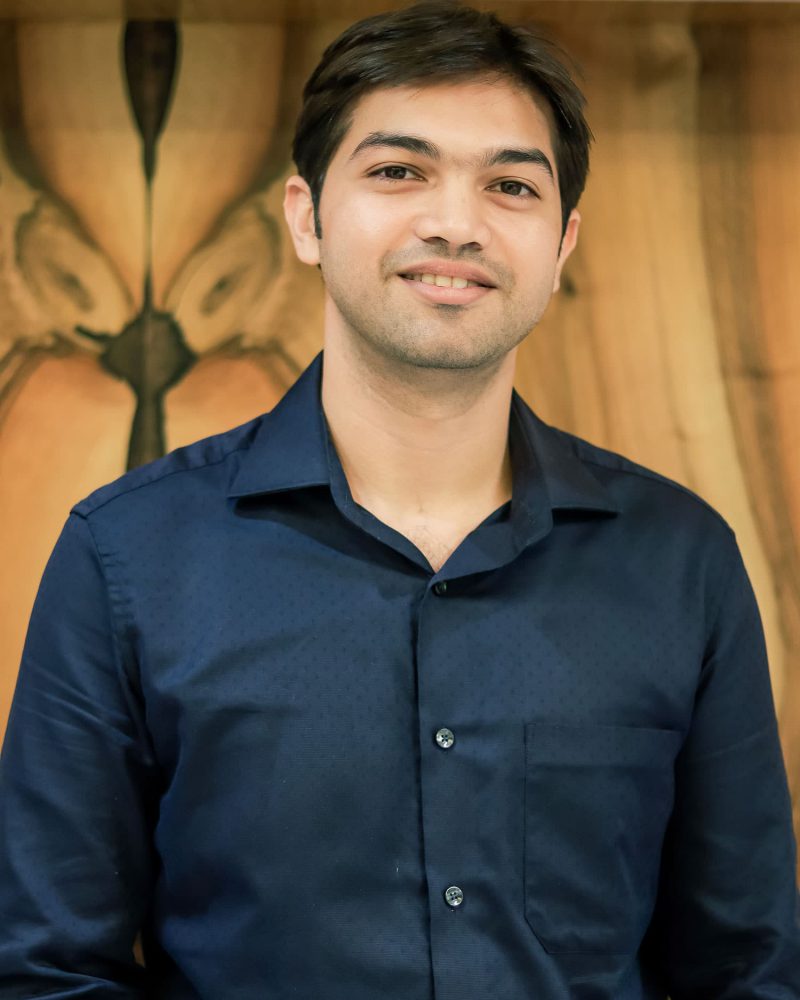
Consult Dr Vikram Pandit
Oral & Maxillofacial Surgeon
Book a consultation with Dr Vikram Pandit. At the consultation, Dr Vikram Pandit will:
- Dr. Vikram Pandit will first perform a thorough examination of your teeth, gums and jaw.
- Explain the problem to you.
- An X-Ray of your teeth will be taken if needed.
We recommend you openly discuss your concerns with Dr. Vikram.
During the consultation be prepared to discuss:
- Your medical conditions, drug allergies, and previous dental treatments.
- Current medications, vitamins, herbal supplements, if any.
- Likely outcomes, and any risks or potential complications.
Book appointment
Meet the Doctor
BDS, MDS Oral & Maxillofacial Surgeon
Dr. Vikram is a visiting consultant and consultant oral and maxillofacial surgeon at the top hospitals in Pune like Poona Hospital and Research Centre, Ratna Memorial Hospital, Pandit Clinic and KEM Hospital. Dr. Vikram has done clinical fellowship in craniofacial surgery with focus on surgery for cleft lip and cleft palate deformities, orthognathic surgery and surgery for sleep related disordered breathing (SRDB). He has trained for advanced management for Facial Trauma, from Taiwan. He has also attended various seminars and done workshops related to Oral and Maxillofacial Surgery. Dr. Vikram is also a co- author of a chapter for a textbook. He has been invited as a speaker for number of conferences in India as well as Internationally.
You Might Be Interested In

Tooth Extractions
Call us +91 88059 80048 A minor surgical procedure that involves wisdom tooth removal, fractured tooth removal, or infected tooth removal Home Oral and Maxillofacial

Maxillofacial Trauma
Call us +91 88059 80048 Home Oral and Maxillofacial Surgery Maxillofacial Trauma Facial traumas are a serious issue because they can cause permanent disfigurement to

Pre-Prosthetic Surgeries
Call us +91 88059 80048 Home Oral and Maxillofacial Surgery Pre-Prosthetic Surgeries The aim of pre-prosthetic surgery is to prepare the soft and hard tissues







